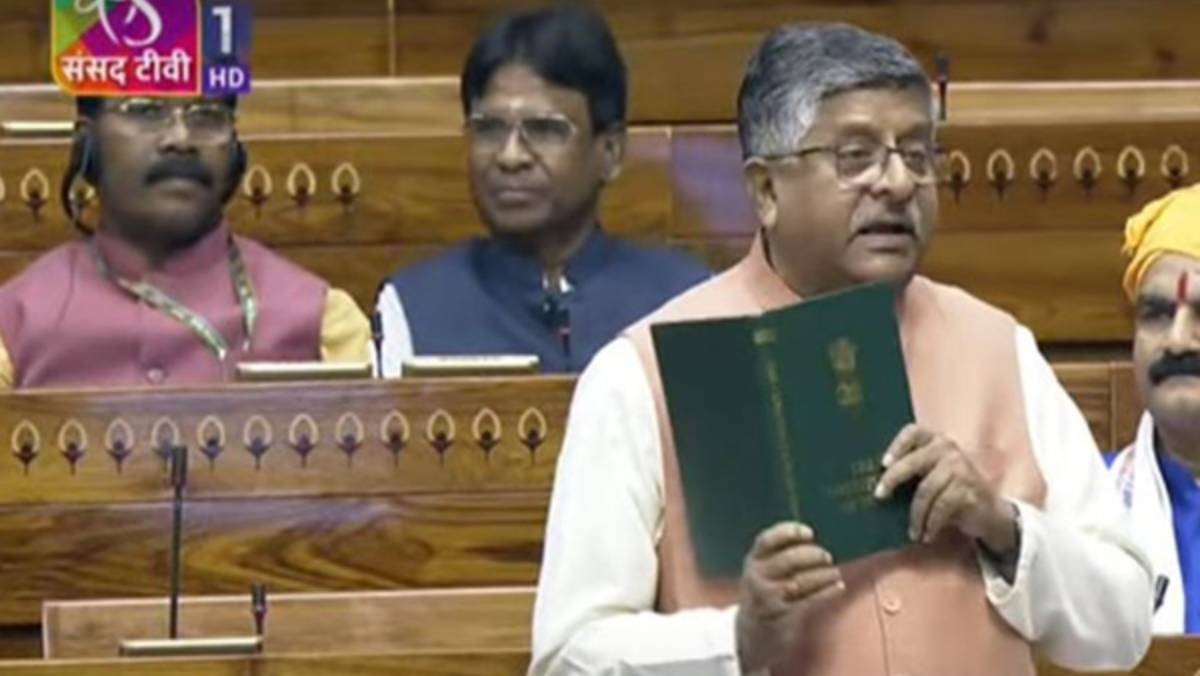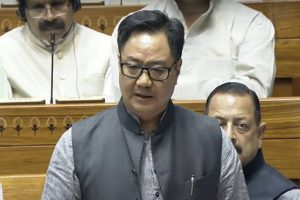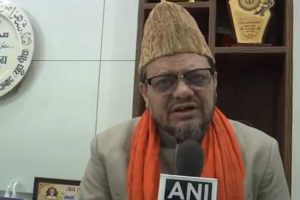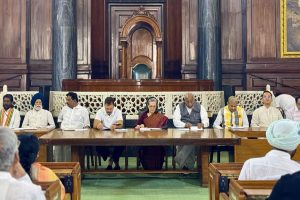BJP MP Ravi Shankar Prasad on Wednesday slammed the Opposition for selectively citing constitutional provisions while debating the Waqf (Amendment) Bill, 2025 in the Lok Sabha. He urged opposition members to quote legal provisions in their entirety rather than using them selectively to criticize the government’s legislative efforts.
“If you quote any part of the law, please ensure you quote it entirely,” Prasad asserted, emphasizing that the Constitution itself supports the government’s measures to protect Waqf properties and uplift marginalised communities, including backward Muslims.
Accusing the Opposition of invoking the Constitution only when convenient, Prasad likened their approach to referencing a “Lal Kitab” (Red Book) that is opened only on specific occasions. He countered, “We have brought the Green Book of the Constitution, which is kept in Parliament.” His remarks underscored the government’s claim that the bill aligns with constitutional principles.
Prasad also questioned the Opposition’s inconsistent stance on the Waqf Bill, claiming their arguments lacked clarity.
Citing Section 15 of the Constitution, which allows the government to enact laws for the welfare of women and backward sections, Prasad defended the bill’s provisions aimed at empowering backward Muslims.
“If this Waqf Bill is aimed at empowering women and backward Muslims, how can it be unconstitutional?” he asked, arguing that the legislation is in line with constitutional principles of social justice.
Highlighting the lack of representation for backward Muslims in Waqf management, Prasad said, “In Bihar, where I come from, and in Uttar Pradesh, many backward Muslims do not get an opportunity to participate in Waqf management. If this bill grants them rights, why should anyone have an issue?”
Prasad also responded to the Opposition’s objections regarding Section 25 of the bill. He clarified that Clause 2 of Section 25 allows the government to regulate Waqf properties to prevent their misuse.
“If Waqf land is being looted or misused, Section 25 allows the government to intervene,” Prasad stated, urging the Opposition to acknowledge this provision instead of misrepresenting it.
“I am responding to their concerns with the Constitution itself,” he added, reinforcing that the bill aims to safeguard Waqf properties while ensuring their proper utilization for the welfare of Muslims.
Introducing the Waqf (Amendment) Bill, 2025, Union Minister Kiren Rijiju questioned why Waqf properties had not been used to develop the nation and uplift the Muslim community.
“India has the highest number of Waqf properties in the world. Why haven’t they been used for the education, medical treatment, skill development, and income generation of poor Muslims?” Rijiju asked.
He also challenged the Opposition’s objections to the Modi government’s efforts to improve the lives of Indian Muslims, while noting that the number of Waqf properties and their income had significantly increased under the current government.
Alongside the Waqf (Amendment) Bill, 2025, Rijiju also introduced the Mussalman Wakf (Repeal) Bill, 2024, for consideration in the Lok Sabha.
Originally introduced in August 2024, the bill was reviewed by a Joint Parliamentary Committee (JPC) led by BJP MP Jagdambika Pal. It seeks to amend the Waqf Act of 1995 to:
- Improve the administration and management of Waqf properties,
- Enhance transparency through better registration,
- Prevent misuse of Waqf land,
- Introduce technology to streamline records.
As the debate intensifies, the bill remains a focal point of contention between the government and the Opposition, with both sides invoking constitutional principles to support their positions.





